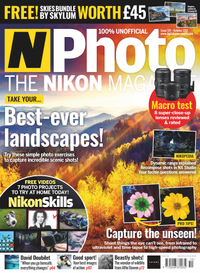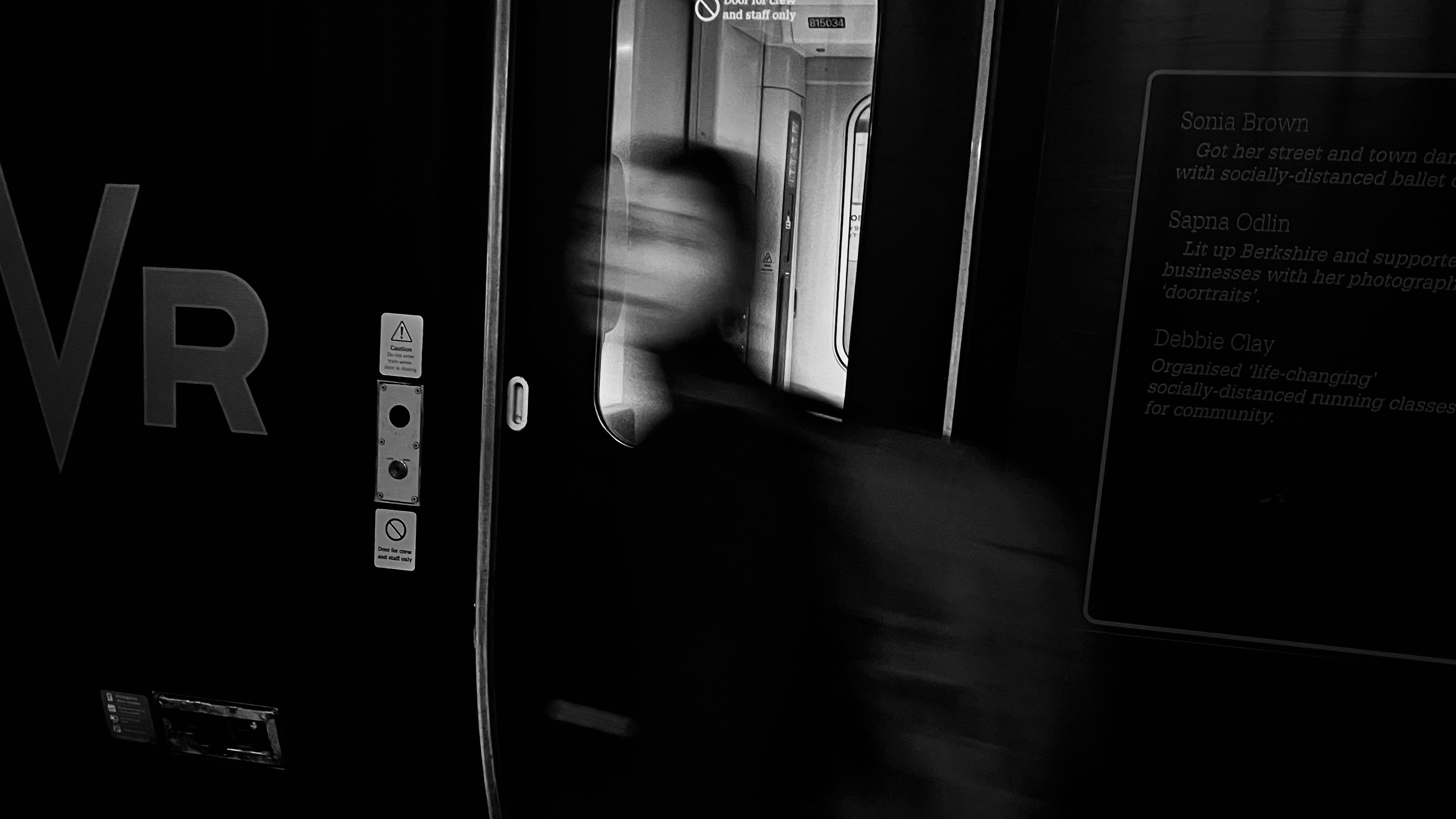Nikon Z fc vs Nikon Z50: is the Nikon Z fc just a ‘retro’ Z50 with a fancy facelift?
On the outside, the Nikon Z fc looks like a huge departure from the Nikon Z50. On the inside it’s, like... the same
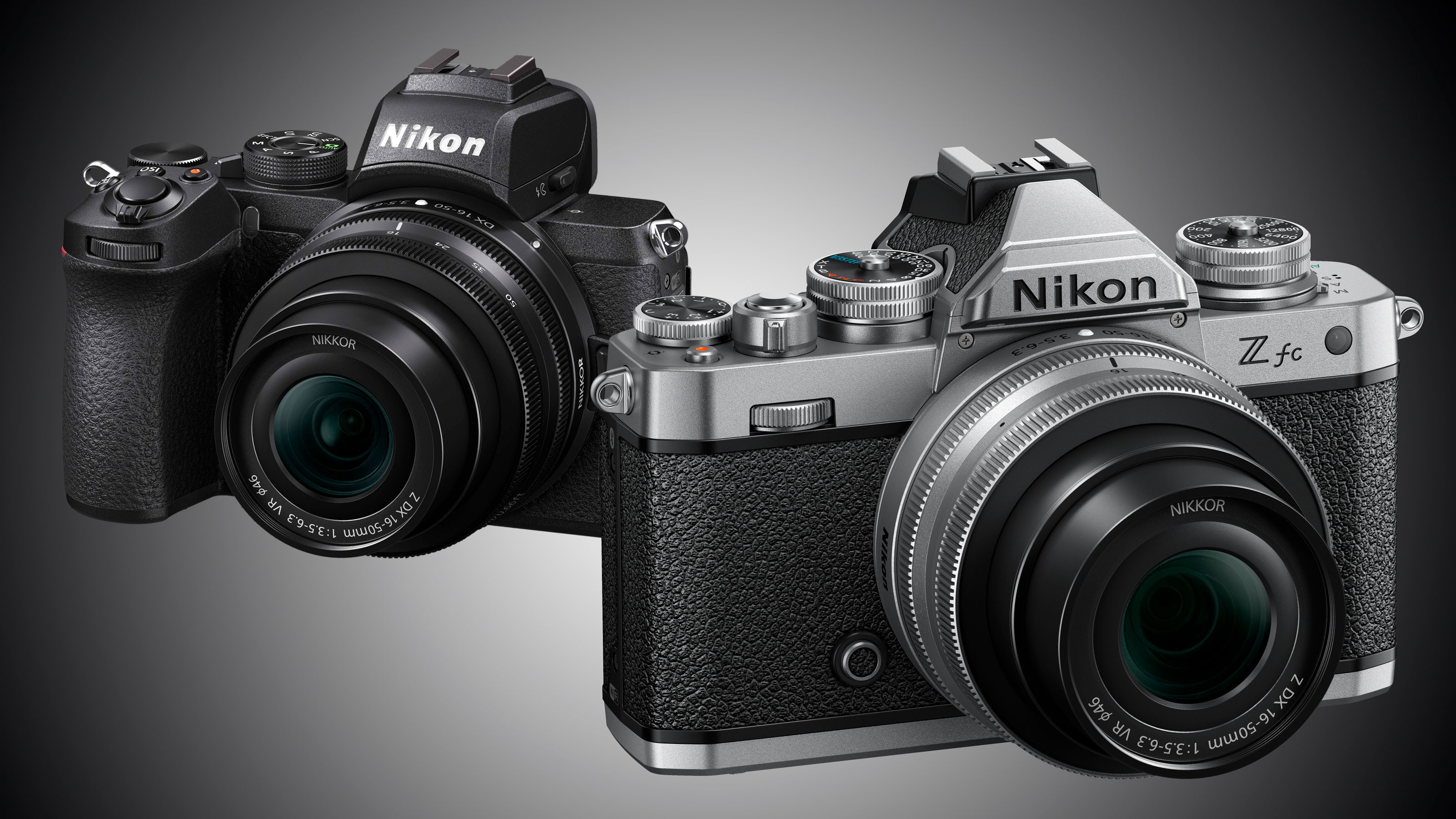
Anyone who remembers the Nikon Df full frame DSLR will spot the resemblance straight away. Nikon has used the same styling cues on the new Nikon Z fc, taking the iconic and achingly handsome looks of the Nikon FM series of 35mm SLRs and melding them with its latest APS-C mirrorless camera technologies.
• Nikon Z50 review
• Best Nikon cameras
• Best mirrorless cameras
• Best vlogging cameras
• Best cameras: how to choose
The result is a camera that looks a million miles from the functional but somewhat plain Nikon Z50, Nikon’s only other APS-C format mirrorless camera to date. They do say, however, that looks are only skin deep, and on closer inspection what’s under the skin of the Z fc looks identical to the Z50’s innards.
So is it the same camera with a different skin, are there any advantages to the Nikon Z fc at all, and where does this leave the plain-looking Z50 now that it has an infinitely more glamorous sibling?
Let’s take a closer look at the differences between the Nikon Z fc and the Nikon Z50 to find out.
• See also: Nikon Z50 vs D7500 | Nikon Z30 vs Nikon Z50 vs Nikon Z fc
Nikon Z fc vs Nikon Z50: what’s actually new
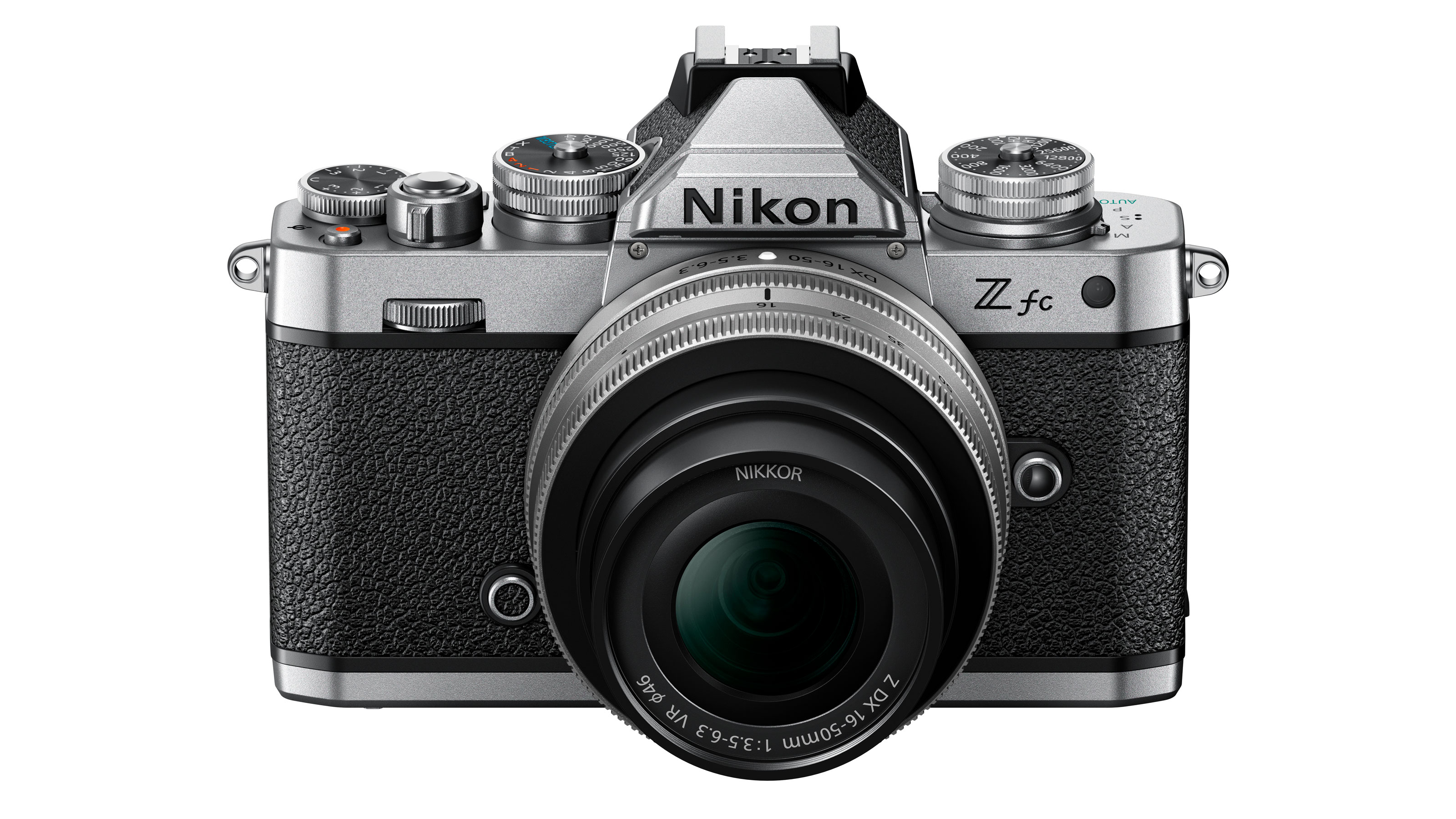
It’s all on the outside. If we were to call out every single dial, button and styling cue, this would take all day, so we’ll sum it all up under one word: design.
01 Design
Why you can trust Digital Camera World
• Nikon Z fc: classic external dials, black and silver finish, retro look
• Nikon Z50: regular mirrorless ‘mini-DSLR’ style with mode dial
The design of the Nikon Z fc echoes that of Nikon’s 35mm film SLRs of the 1980s, a golden age of camera design enshrined in a silver and black leatherette finish that will bring a tear to the eye of any photographer of a certain age.
Most modern cameras are controlled with a mode dial, and shutter speed and ISO settings set via a digital interface. The Z fc relegates the mode dial options to a small lever under a big external ISO dial on the top plate. On the other side of the pentaprism/viewfinder is an equally big shutter speed dial. The only external control you don’t get is an aperture ring, so in truth the Z fc is only two-thirds of the way to a full set of external exposure controls.
The Z50 is purely functional. It’s appealing enough in its own way, and the grip makes it practical tool, but this is one beauty contest it’s never going to win.
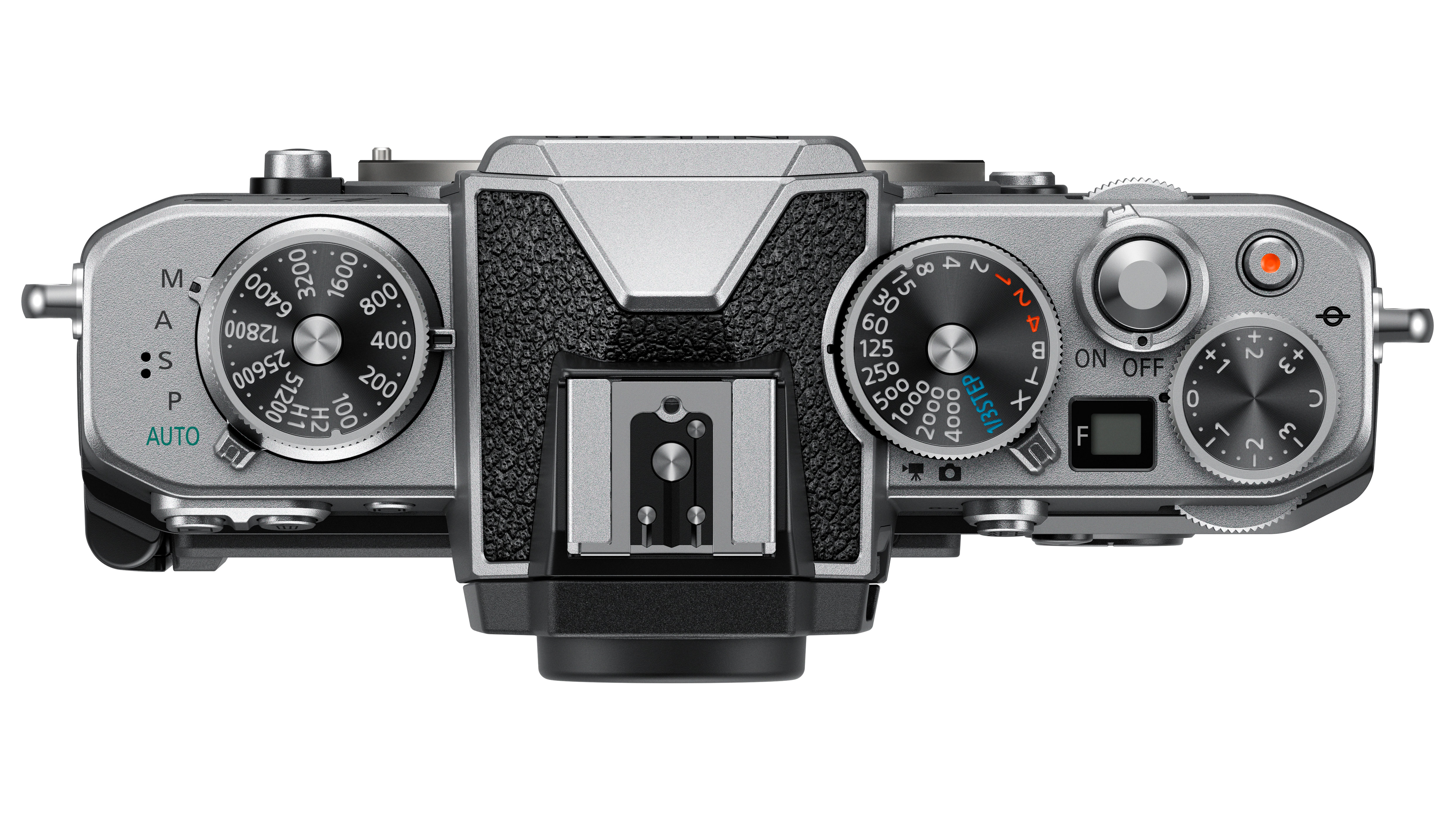
02 Rear screen
• Nikon Z fc: 3-in vari-angle touchscreen, 1.04m dots
• Nikon Z50: 3.2-in tilting screen, 1.04m dots
The Z fc is not all show and no go. Round the back it has a fully-articulating touchscreen display, that’s a tad smaller than the screen on the Z50 (3-in vs 3.2-in) but massively more practical, especially for selfies and vlogging.
It’s the first time Nikon has put a vari-angle screen on one of its Nikon Z mirrorless cameras, and you have to wonder why it’s taken so long.
The tilting screen on the Z50 is fine for most purposes, but if you’re looking for a practical advantage to the Z fc rather than a purely cosmetic one, this is it.
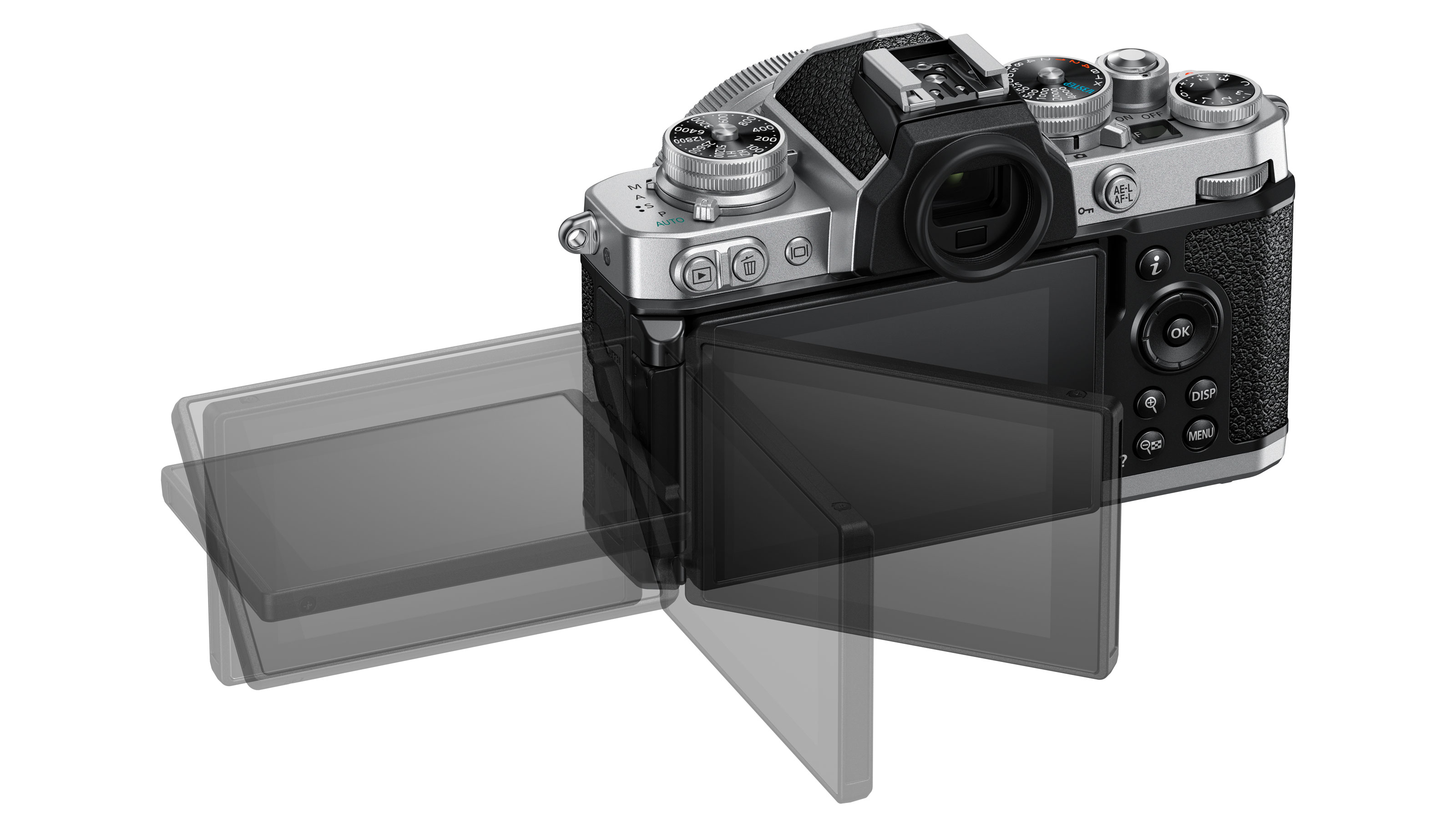
03 Flash
• Nikon Z fc: It doesn’t have one
• Nikon Z50: Built in, GN7 at ISO 100
As ever, though, it’s swings and roundabouts. The Z fc has a hotshoe for attaching an external flash, but doesn’t have one built in. The Nikon Z50 does, even if it’s a fairly weedy little unit with a Guide Number of just 7 at ISO 100.
04 Dimensions
• Nikon Z fc: 134.5 x 93.5 x 43.5mm, 390g body only
• Nikon Z50: 126.5 x 93.5 x 60 mm, 450g
Interestingly, the Z fc is a fraction lighter than the Z50, though both are pretty light cameras and you’re unlikely to notice the difference. It’s slightly wider than the Nikon Z50, the same height and a lot slimmer in the body, through not having a grip on the front.
Nikon Z fc vs Nikon Z50: what’s exactly the same
Is the above enough to make you choose the Nikon Z fc over the Nikon Z50? It will have to be, because everything else is exactly the same. Let’s examine the tech specs in more detail, and see also how they compare with rival cameras and brands.
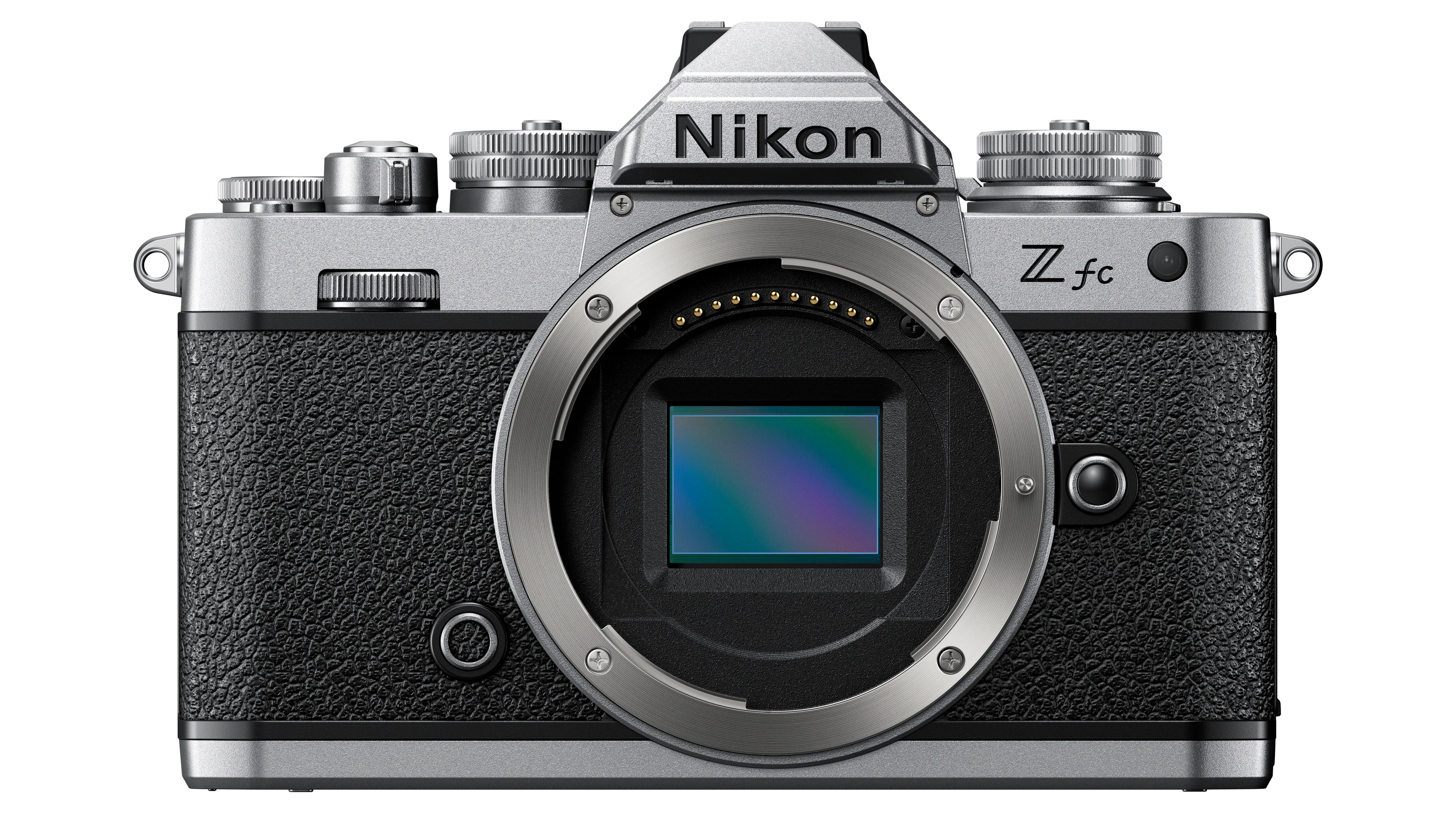
05 Sensor
• Nikon Z fc: 20.9MP APS-C CMOS with low pass filter, EXPEED 6
• Nikon Z50: 20.9MP APS-C CMOS with low pass filter, EXPEED 6
Nikon has been very brave in swapping to a lower-resolution sensor than its rivals. The 20.9MP APS-C sensor now used by Nikon across much of its APS-C camera range is 3MP less than its previous 24MP cameras and most APS-C rivals. Fujifilm has a mix of 24MP and 26MP cameras and Canon tops the leaderboard with the 32.5MP EOS M6 Mark II.
Is 20.9MP enough in this day and age? It probably is, unless you plan super-huge enlargements. This lower resolution also improves – in theory – the camera’s low light performance and dynamic range.
06 ISO range
• Nikon Z fc: ISO 100-51,200
• Nikon Z50: ISO 100-51,200
There’s no difference in these two cameras’ ISO ranges, either. With a new camera Nikon will often tweak the processing and squeeze out a wider ISO range from the same sensor, but not this time.
This is a pretty good ISO range, too, and demonstrates a quiet revolution in camera performance over the past few years.
07 Autofocus
• Nikon Z fc: 209-point hybrid AF with eye-detect for humans and animals, down to -4.5EV
• Nikon Z50: 209-point hybrid AF with eye-detect for humans an animals, down to -4EV
The 209-point hybrid AF system used in the Nikon Z50 is unchanged in the new Z fc. Both cameras also offer human and animal eye detection, and the only difference we can find is that the Z50 is quoted as being sensitive down to -4EV, while the Z fc’s AF system goes down to -4.5EV. That’s a small improvement in light levels so dim you’ll rarely encounter them.
08 Continuous shooting
• Nikon Z fc: 11fps
• Nikon Z50: 11fps
The Nikon Z50 offers a very snappy frame rate of 11fps in burst mode, and this carries through to the Nikon Z fc so, again, there’s no change there. Both cameras can shoot at speeds previously associated with pro sports cameras – one of the advantages of mirrorless camera design.
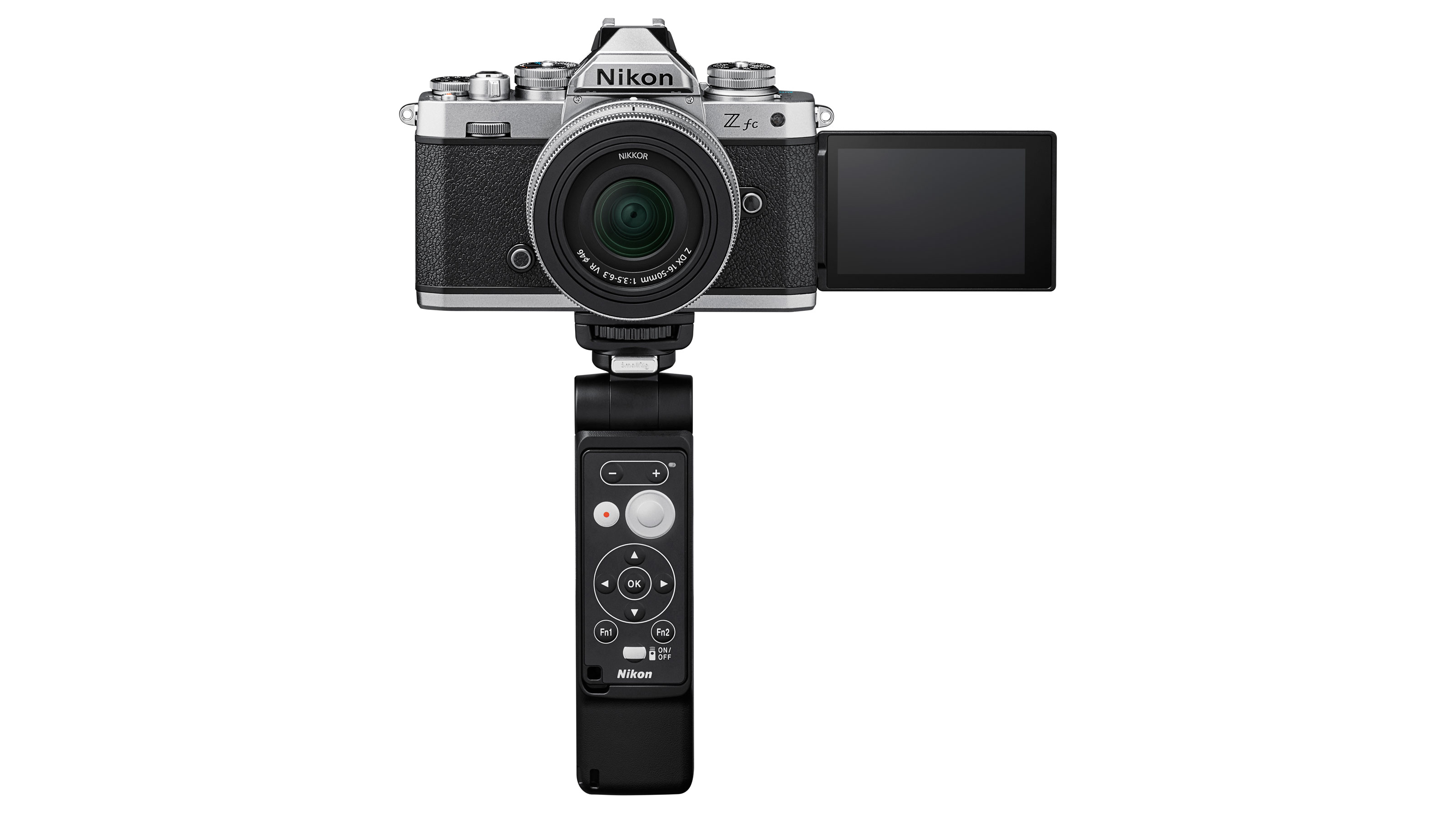
09 Video
• Nikon Z fc: 4K UHD 30p, FHD up to 120p, mic socket
• Nikon Z50: 4K UHD 30p, FHD up to 120p, mic socket
Video capabilities are becoming just as important as stills photography for today’s content creators, family memory keepers, vloggers and influencers, and the Z fc and Z50 share the same decent video specifications. Both can shoot 4K UHD video at up to 30p and full HD at up to 120p, and both have sockets for external microphones.
The Z fc does have a couple of hardware advantages, though. One is the vari-angle screen, which offers much more flexibility while filming, and another is the optional camera grip/mini tripod and remote included in the Z fc vlogging kit.
10 Viewfinder
• Nikon Z fc: 0.39-in XGA OLED, 2.36m dots, 100% coverage, 1.02x magnification
• Nikon Z50: 0.39-in XGA OLED, 2.36m dots, 100% coverage, 1.02x magnification
By today’s standards, the 0.39-in 2.36m dot electronic viewfinders in the Z fc and the Z50 are adequate rather than exceptional, but at this price level it’s unlikely users will find anything to complain about.
The only difference is that the Nikon Z fc does have a round viewfinder eyepiece to echo that classic Nikon 35mm SLR look.
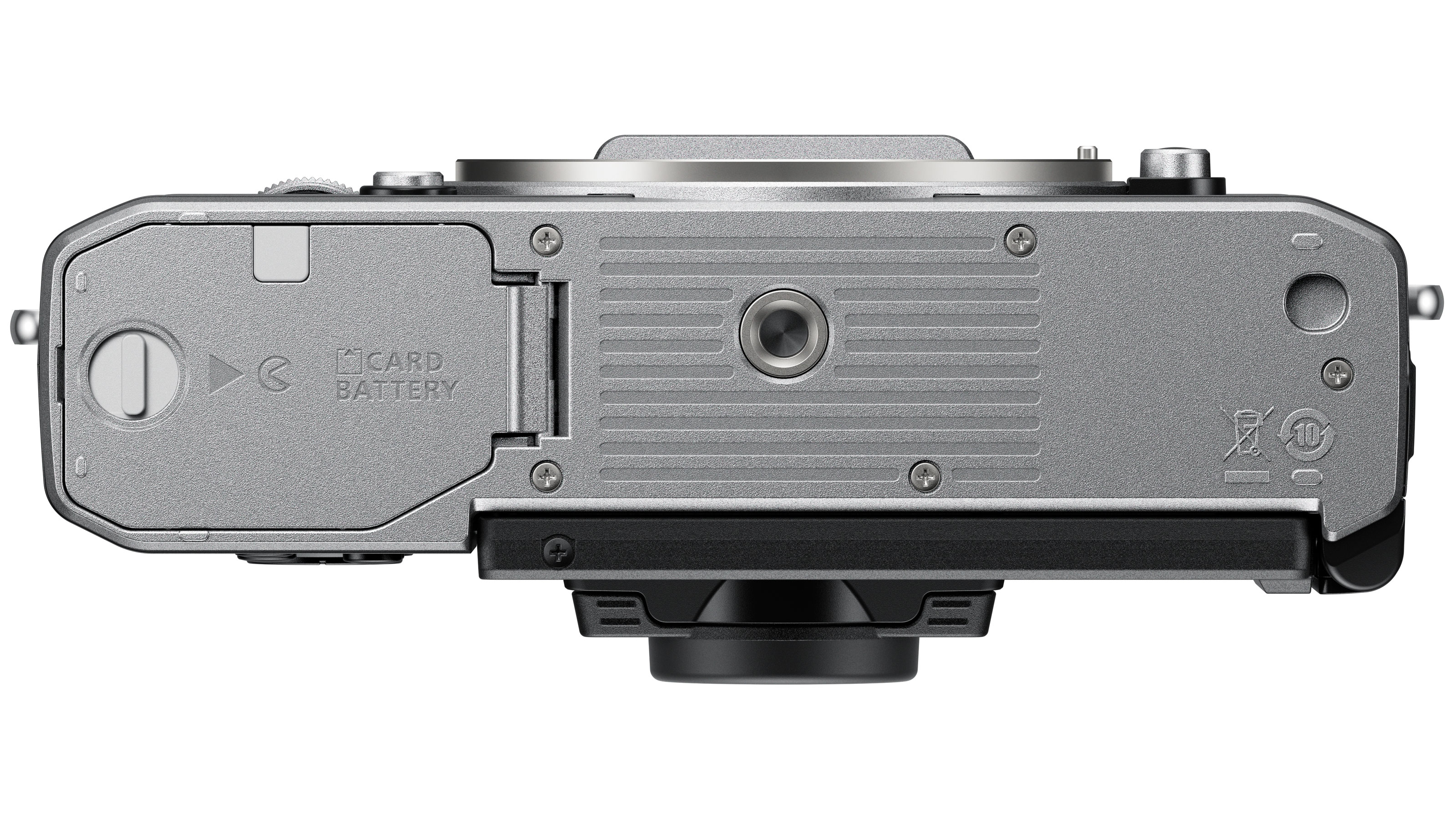
11 Storage
• Nikon Z fc: 1x SD UHS-I card slot
• Nikon Z50: 1x SD UHS-I card slot
Both cameras come with a single SD card slot which is UHS-I compatible but not the faster UHS-II standard. The fact is, though, that you only really need UHS-II cards for high quality 4K video at higher frame rates than these cameras offer, or greater bit depths. UHS-I is fine for the kind of light video/vlogging use these cameras are designed for.
12 Battery
• Nikon Z fc: EN-EL25 battery, USB charging supported
• Nikon Z50: EN-EL25 battery, USB charging supported
Even the batteries are the same. We can’t even find any differences in the charging methods, since both cameras support USB charging.
Which is best, the Nikon Z50 or Z fc?

We’re going to give you the answer in three parts:
1) If you’re concerned solely with practicality, performance and specifications and don’t bother about looks, get the Nikon Z50. Its prices have been falling and look likely to fall further with the arrival of the Nikon Z fc. Effectively, you get the same camera for significantly less money…
2) UNLESS you really want a vari-angle screen (and a slimmer body). These are two very good reasons for paying that little bit more to get the Z fc. There is, of course, a third reason.
3) The Nikon Z fc looks simply fabulous. Even if you think you don’t care what a camera looks like, you will when you see this. You have to be pretty hard-hearted to love objects purely for what they do and not what they look like, and if the Z fc’s retro charm means you love carrying it around with you, your photography is likely to benefit too.
Read more:
• Nikon Z50 review
• Best Nikon cameras
• Best mirrorless cameras
• Best vlogging cameras
• Best cameras: how to choose
N-Photo: The Nikon Magazine is a monthly magazine that's written by Nikon enthusiasts for Nikon enthusiasts, so you can be sure that all the content is 100% relevant to you! So for the best Nikon-focused news, reviews, projects and a whole lot more, subscribe to N-Photo today – with our unmissable sub deal!
Get the Digital Camera World Newsletter
The best camera deals, reviews, product advice, and unmissable photography news, direct to your inbox!
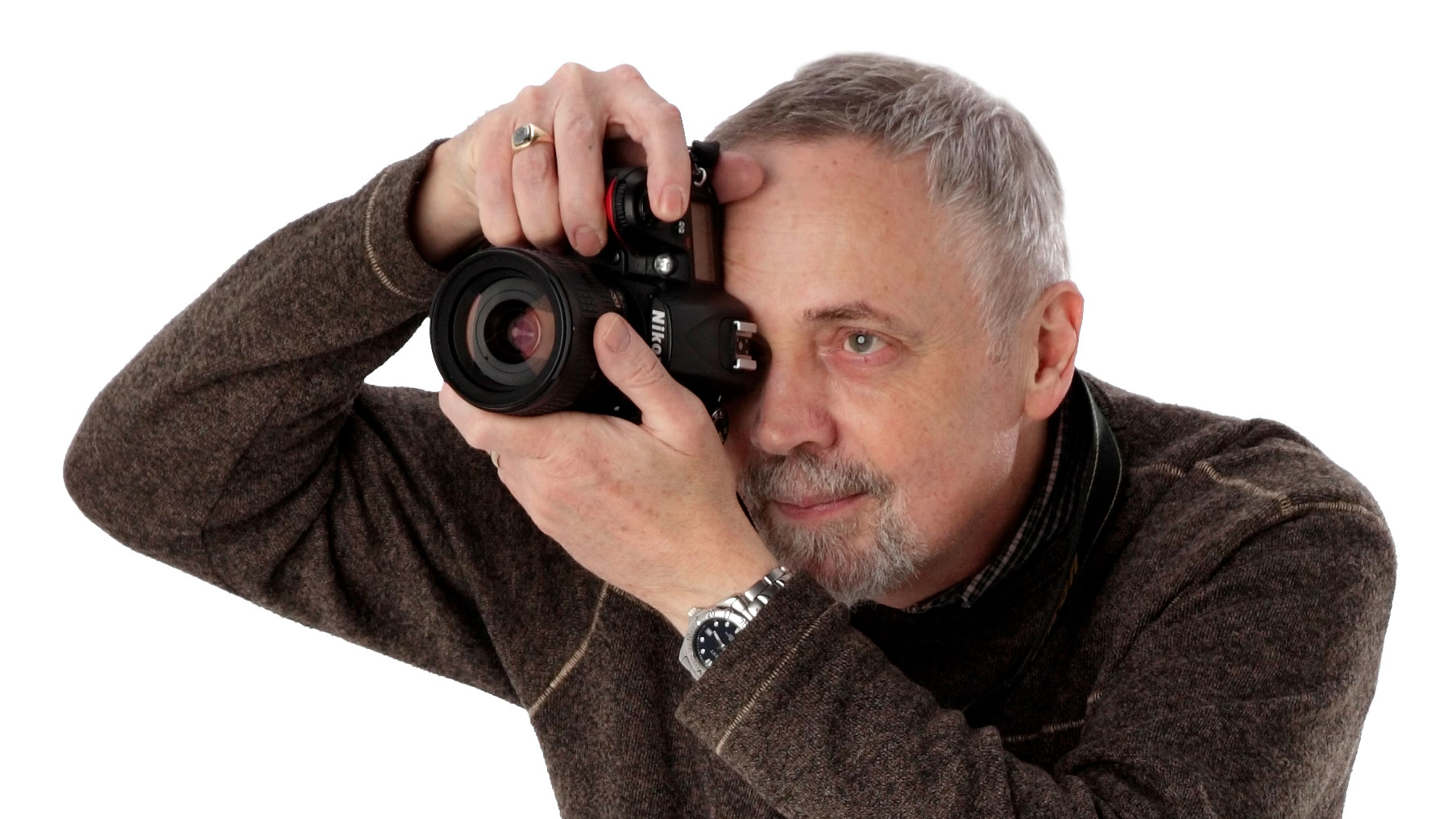
Rod is an independent photography journalist and editor, and a long-standing Digital Camera World contributor, having previously worked as DCW's Group Reviews editor. Before that he has been technique editor on N-Photo, Head of Testing for the photography division and Camera Channel editor on TechRadar, as well as contributing to many other publications. He has been writing about photography technique, photo editing and digital cameras since they first appeared, and before that began his career writing about film photography. He has used and reviewed practically every interchangeable lens camera launched in the past 20 years, from entry-level DSLRs to medium format cameras, together with lenses, tripods, gimbals, light meters, camera bags and more. Rod has his own camera gear blog at fotovolo.com but also writes about photo-editing applications and techniques at lifeafterphotoshop.com
